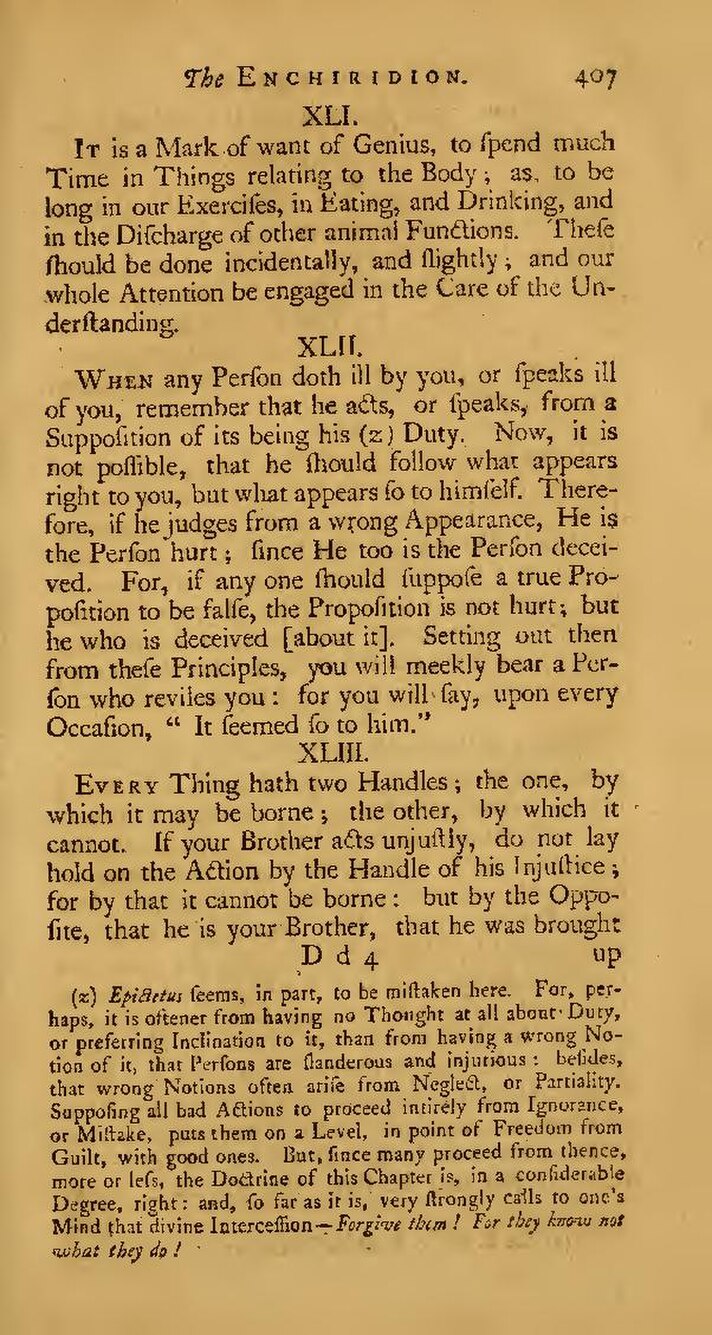XLI.
It is a Mark of want of Genius, to spend much Time in Things relating to the Body; as, to be long in our Exercises, in Eating, and Drinking, and in the Discharge of other animal Functions. These should be done incidentally, and slightly; and our whole Attention be engaged in the Care of the Understanding.
XLII.
When any Person doth ill by you, or speaks ill of you, remember that he acts, or speaks, from a Supposition of its being his[1] Duty. Now, it is not possible, that he should follow what appears right to you, but what appears so to himself. Therefore, if he judges from a wrong Appearance, He is the Person hurt; since He too is the Person deceived. For, if any one should suppose a true Proposition to be false, the Proposition is not hurt; but he who is deceived [about it]. Setting out then from these Principles, you will meekly bear a Person who reviles you: for you will say, upon every Occasion, "It seemed so to him."
XLIII.
Every Thing hath two Handles; the one, by which it may be borne; the other, by which it cannot. If your Brother acts unjustly, do not lay hold on the Action by the Handle of his Injustice; for by that it cannot be borne: but by the Opposite, that he is your Brother, that he was brought
- ↑ Epictetus seems, in part, to be mistaken here. For, perhaps, it is oftener from having no Thought at all about Duty, or preferring Inclination to it, than from having a wrong Notion of it, that Persons are slanderous and injurious: besides, that wrong Notions often arise from Neglect, or Partiality. Supposing all bad Actions to proceed intirely from Ignorance, or Mistake, puts them on a Level, in point of Freedom from Guilt, with good ones. But, since many proceed from thence, more or less, the Doctrine of this Chapter is, in a considerable Degree, right: and, so far as it is, very strongly calls to one's Mind that divine Intercession—Forgive them! For they know not what they do!
